Home inspections are an integral part of the house buying or selling process and home inspectors are trusted with the insights into the condition of the home, helping buyers make informed decisions and sellers address any issues before listing their property. However, what happens if the inspector misses something during the inspection? In this article, we’ll explore the potential consequences and steps to take if an oversight occurs.
Home inspections are conducted by qualified inspectors who thoroughly assess various aspects of a property, including its structural integrity, electrical systems, plumbing, roofing, and more. Inspectors use specialized tools and techniques to identify potential issues and provide a comprehensive report to the client.
Despite their expertise and diligence, inspectors are not infallible, and it is possible for them to miss certain problems during the inspection process. These oversights can range from minor issues to significant defects that may have a substantial impact on the value and safety of the property.
Consequences of Missed Issues
- Financial Implications:
- One of the primary concerns of a missed issue is the financial impact it may have on the buyer or seller. Depending on the nature and severity of the problem, addressing the issue could involve significant repair costs or renegotiating the sale price.
- Safety Risks:
- Missed issues that pose safety risks, such as electrical faults or structural defects, can jeopardize the well-being of occupants. Addressing these issues promptly is essential to mitigate any potential hazards.
- Legal Ramifications:
- In some cases, missed issues could lead to legal disputes between buyers, sellers, and inspectors. If a significant problem is discovered after the sale closes, the party responsible for the oversight may be held liable for damages.
- Impact on Transaction:
- Depending on the terms of the purchase agreement, a missed issue could delay or derail the transaction altogether. Buyers may reconsider their offer, and sellers may be required to make additional disclosures or concessions.
Steps to Take If an Issue Is Missed
- Review Inspection Report:
- Carefully review the inspection report to ensure that all areas of concern were adequately addressed. If you suspect that an issue was overlooked, discuss your concerns with the inspector and request clarification.
- Seek Professional Advice:
- If you believe that a significant issue was missed, consider seeking a second opinion from a qualified professional, such as a licensed contractor or structural engineer. They can provide an independent assessment of the property and identify any overlooked problems.
- Negotiate with the Other Party:
- If a missed issue is discovered before the sale closes, you may have the opportunity to renegotiate the terms of the agreement with the other party. This could involve requesting repairs, a price reduction, or other concessions to compensate for the oversight.
- Consult Legal Counsel:
- If the missed issue has legal implications or if you are unable to reach a satisfactory resolution with the other party, it may be necessary to seek legal advice from a qualified attorney.
Preventing Missed Issues in the Future
While it’s impossible to guarantee that every potential issue will be identified during a home inspection, there are steps that can be taken to minimize the likelihood of oversights:
- Choose a Qualified Inspector:
- Selecting a reputable and experienced inspector with a track record of thoroughness is essential. Research their credentials, read reviews, and ask for references before hiring.
- Attend the Inspection:
- Whenever possible, attend the inspection in person to observe the process and ask questions. This allows you to gain a better understanding of the property’s condition and address any concerns directly with the inspector.
- Conduct Regular Maintenance:
- Prioritize regular maintenance and upkeep of the property to identify and address issues before they escalate. This can help prevent minor problems from becoming major headaches down the road.
- Be Diligent in Reviewing Reports:
- Take the time to carefully review the inspection report and ask for clarification on any areas of concern. Don’t hesitate to seek additional information or professional opinions if needed.
Conclusion
While home inspections are an essential part of the real estate transaction process, they are not foolproof, and it is possible for inspectors to miss certain issues. In such cases, the consequences can range from financial implications to legal disputes and safety risks. However, by taking proactive steps to address any oversights and prevent future issues, buyers and sellers can navigate the process with confidence and peace of mind.

